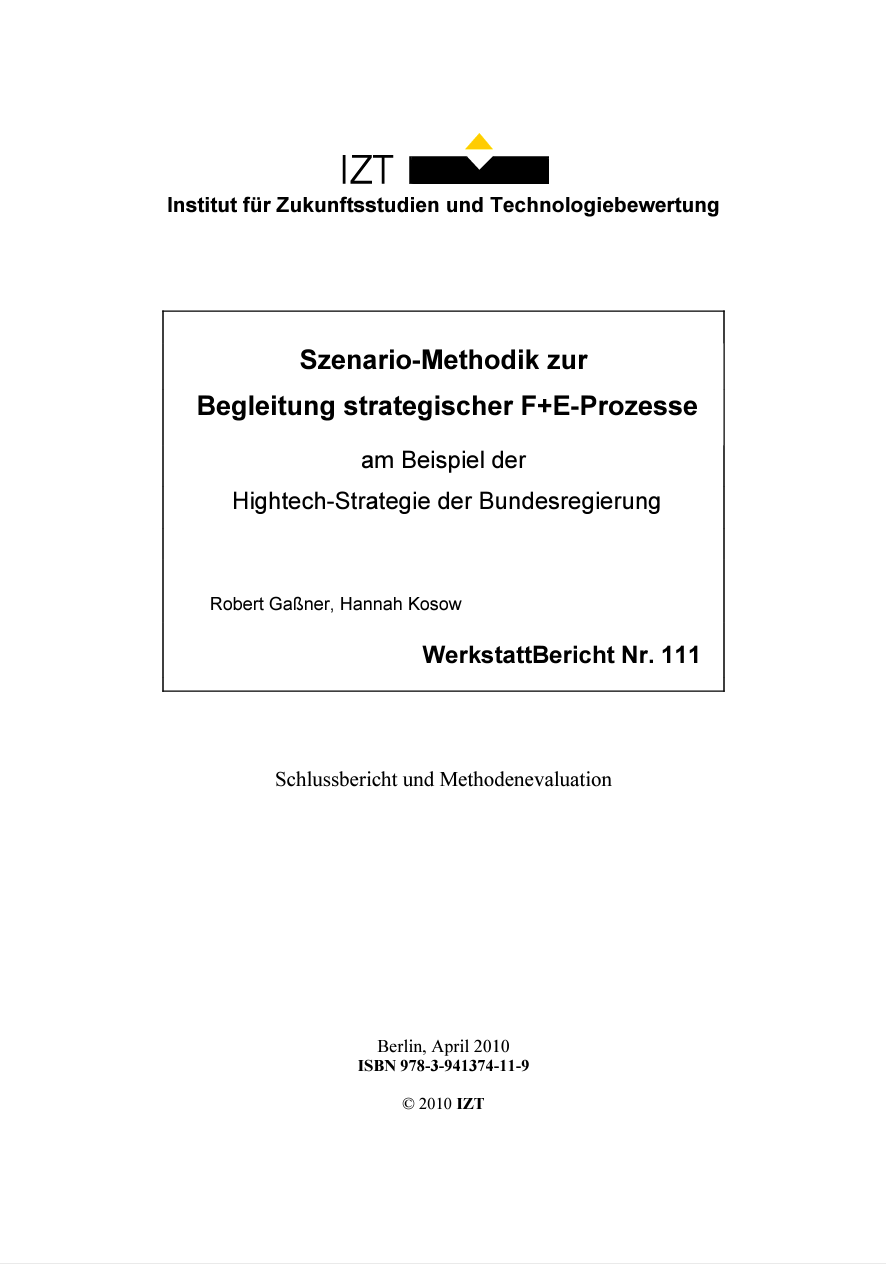Scenario methodology to accompany strategic R&D processes
Abstract
Against the background of the good experience gained at the IZT with the constructive effects of scenario processes, scenario methodology should be applied and further developed in the accompaniment of strategic research and development processes (R&D processes). Using the example of the Federal Government's "High-Tech Strategy for Germany", the aim was to investigate how scientific and technological fields of innovation can be (further) concretised by working with scenarios and supported in communication processes through illustrative images of the future. Six scenario processes were carried out on ambient assisted living, security technologies, water, nutrition and energy-efficient cities. At least half of the participants were from the ministerial sector. The aim was to develop (further) positive visions and desirable futures for the individual fields of innovation and to derive concrete options for action. The accompanying method evaluation shows that almost all participants not only assess the work in the scenario workshops very positively, but also draw remarkably clear benefits from it for the penetration of the topic as well as for their professional field of activity and their network of contacts. The connectivity and motivational power of this type of methodological support for strategic R&D processes through scenario methodology can thus be considered fundamentally confirmed.
